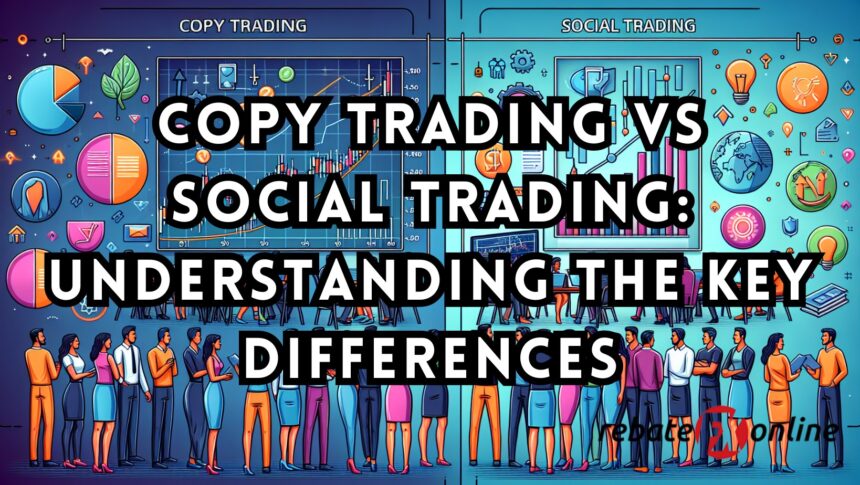In the fast-paced world of financial markets, traders are always on the lookout for innovative strategies to maximize their gains. Two popular approaches that have gained significant attention are copy trading and social trading. While they share similarities, they also have distinct differences that can impact your trading experience and outcomes. In this article, we’ll explore these two trading methods, their benefits, and their key differences to help you make an informed decision.
What is Copy Trading?
Copy trading is a method where an investor replicates the trades of a seasoned trader. Essentially, it allows beginners or less experienced traders to benefit from the expertise of more knowledgeable traders. When the experienced trader makes a trade, it is automatically copied in the investor’s account, usually in real-time.
Benefits of Copy Trading
- Ease of Use: Copy trading platforms are typically user-friendly, making it easy for beginners to start trading without extensive market knowledge.
- Time-Saving: Investors can save time as they don’t need to constantly monitor the markets or develop their own trading strategies.
- Expertise: By copying successful traders, investors can leverage the expertise and experience of seasoned professionals.
- Diversification: Investors can diversify their portfolio by copying multiple traders, reducing the risk associated with relying on a single strategy.
What is Social Trading?
Social trading is a broader concept that involves sharing trading strategies, ideas, and insights within a community of traders. It combines elements of social networking with trading, allowing users to interact, discuss market trends, and follow each other’s trades. Unlike copy trading, social trading is more interactive and community-driven.
Benefits of Social Trading
- Community Engagement: Traders can interact, share ideas, and learn from each other, fostering a sense of community and collaboration.
- Learning Opportunity: Novice traders can gain valuable insights and improve their trading skills by observing and discussing strategies with more experienced traders.
- Transparency: Social trading platforms often provide detailed performance data and trading history, allowing users to make informed decisions.
- Flexibility: Traders have the freedom to choose which strategies to follow or adapt, rather than automatically copying trades.
Key Differences Between Copy Trading and Social Trading
While both copy trading and social trading offer unique advantages, there are several key differences that set them apart:
- Level of Involvement:
- Copy Trading: Requires minimal involvement from the investor as trades are automatically copied.
- Social Trading: Encourages active participation and interaction within the trading community.
- Control Over Trades:
- Copy Trading: Investors have limited control over individual trades once they are copied.
- Social Trading: Traders can choose to follow and adapt strategies as they see fit, retaining control over their trades.
- Learning Curve:
- Copy Trading: Ideal for those who prefer a hands-off approach and want to rely on expert traders.
- Social Trading: Better suited for those who wish to learn and develop their trading skills through community engagement.
- Risk Management:
- Copy Trading: Risk is managed by the trader being copied, though investors can set parameters to control their risk exposure.
- Social Trading: Traders must manage their own risk, though they can gain insights from the community on best practices.
- Customization:
- Copy Trading: Offers less customization as trades are replicated exactly as executed by the copied trader.
- Social Trading: Provides greater flexibility and customization as traders can choose which strategies to follow and modify.
Conclusion
Both copy trading and social trading offer unique benefits and can be valuable tools for investors looking to enhance their trading experience. Copy trading is ideal for those seeking a more automated and hands-off approach, leveraging the expertise of successful traders. On the other hand, social trading is perfect for those who want to engage with a community, learn from peers, and have greater control over their trades.
Ultimately, the choice between copy trading and social trading depends on your individual preferences, goals, and level of experience. By understanding the key differences and benefits of each method, you can make an informed decision that aligns with your trading strategy and objectives.
For more in-depth information on trading strategies and to explore the best platforms for copy trading and social trading, visit our blog regularly and stay updated with the latest trends in the financial markets.

